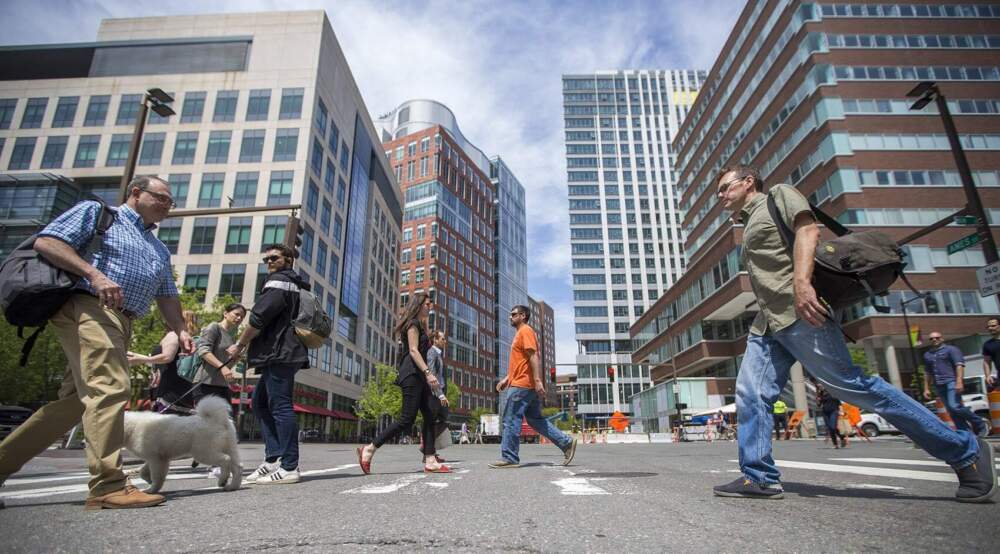Jobs
Mass. life sciences sector adds 3,000 new jobs, despite industry layoffs

Despite layoffs and declines in funding over the past year, Massachusetts’ biopharma industry added 3,000 net new jobs in 2023, according to a new report released Tuesday by MassBio.
The biotech trade group’s annual “Industry Snapshot” report examines the growth of the state’s life sciences industry in a number of ways, including employment, funding, drug development and other metrics.
There are nearly 117,000 workers in the biopharma sector, which represents just 3.7% of the state’s overall workforce. But the industry’s job growth accounted for nearly 17% of job growth in Massachusetts in 2023, according to the report.
Much of that job growth was bolstered by research and development — the state’s “bread and butter,” according to MassBio spokesman Ben Bradford.
“We remain the best place in the world for research and development, especially that early stage innovation that’s coming out of our hospitals, colleges, universities, research institutes. That’s why the large pharmas are here,” Bradford said.
He added that while most of those large pharma companies are not headquartered in Massachusetts, 18 of the top 20 have a presence in the state.
Bradford said about 2,000 of biopharma’s net new jobs were in research and development. The state is also a critical leader in therapies — representing 15% of the U.S. drug development pipeline and 6.4% of the global pipeline.
Meanwhile, biomanufacturing jobs dipped by roughly 2% in the state overall, though there was growth in some parts in the state. Notably, Worcester County saw a nearly 12% increase in biomanufacturing jobs, according to the report. There are efforts underway to boost life sciences, including biomanufacturing, in the region as well as recent investments from the state.
The job growth in the state’s biopharma sector comes despite layoffs at several companies last year. And there are more layoffs to come as industry giant Takeda Pharmaceuticals recently announced plans to lay off hundreds of workers in the state.
Another area to watch is venture capital funding. So far in the first half of 2024, Massachusetts-based companies received $3.26 billion in venture capital funding, which is down 12.6% from the same time last year, according to the report. Funding is critical for cutting edge innovation to become more mature, according to Bradford.
“Without that very early stage funding, we may not see as many companies growing as quickly,” he said.
Venture capital funding saw record high levels during the pandemic — which put a huge spotlight on the industry and brought out a variety of investors looking for the next big thing. Local companies received $8 billion in 2020, roughly $13 billion in 2021 and nearly $9 billion in 2022.

“Things got really frothy in 2020 and 2021,” Bradford said. “And how can you blame investors for looking to find the next Moderna, which went from a very small company to a global household name overnight?”
Still, Bradford said “that doesn’t happen every day.” He thinks there’s a reset happening right now with venture capital funding and “we’re getting back to normal.”
Interestingly, of the venture capital funding that has been invested so far this year, most of it is benefitting cities and towns outside of Cambridge, the state’s life sciences hub. According to the report, 65% of venture capital funding was invested in companies located outside of Cambridge — including in Waltham, Watertown and Framingham. That’s up from 55% in the first half of 2023, the report noted.
This “tremendous” distribution of funding shows the biopharma industry “is able to support many different micro clusters across the Commonwealth,” Bradford said.










